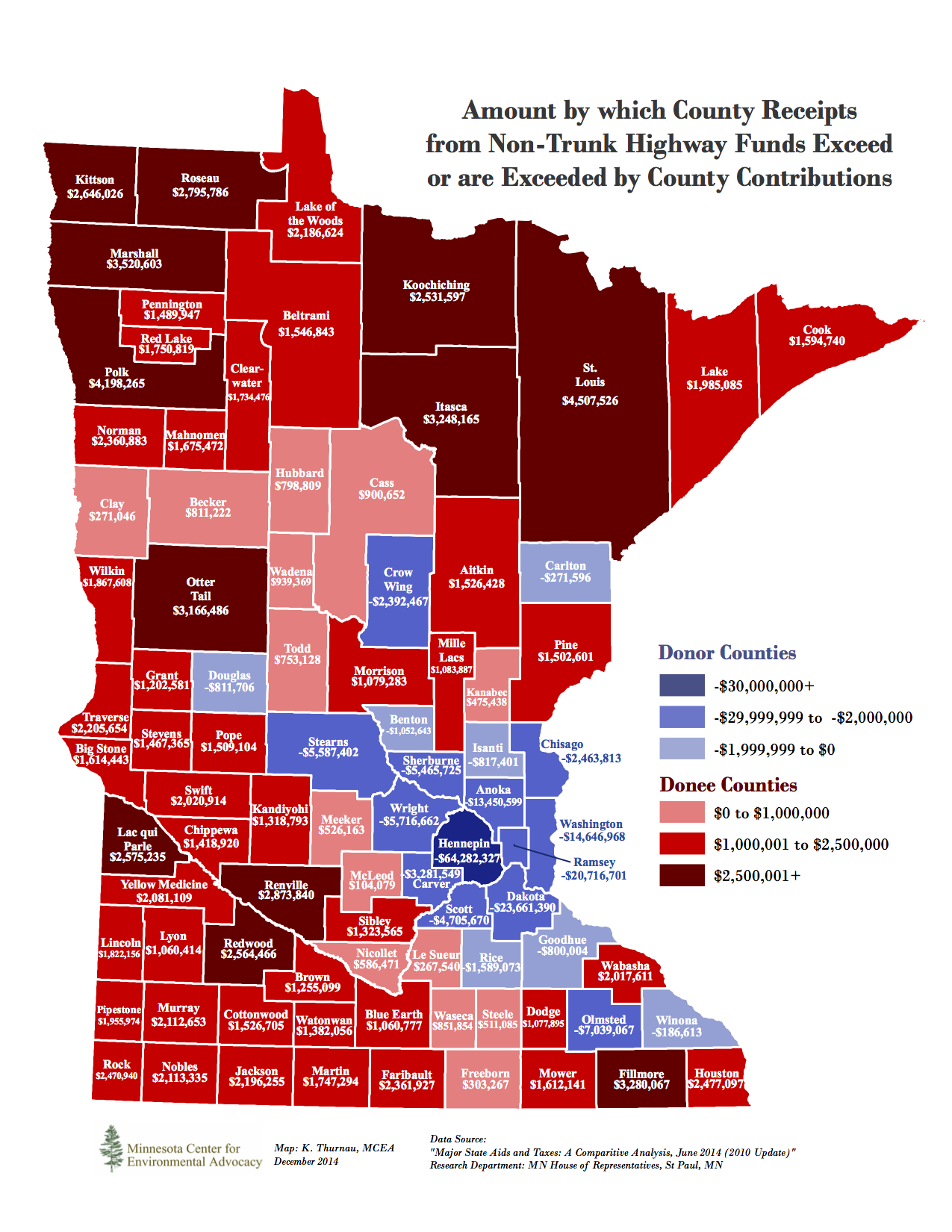When the Republican-controlled Minnesota legislature began on January 3, 2017, several Republican representatives took their places as heads of committees in which they used to be minority members. Included in this number is Senator Scott Newman (R- Hutchinson), who has recently taken up his position as the chair of the Transportation Committee. Newman has stated that his focus will be to expand funding in Greater Minnesota for construction roads and bridges, while limiting the budget of public transit in the Twin Cities area, as well as the rest of the state.
“My focus and concentration ... is to see that outstate Minnesota, including McLeod County, receives as much funding as possible and at least our fair share to accomplish the maintenance of our roads and bridges system,” Newman said.
As have many state Republicans over the years, Newman asserts that rural areas of Minnesota have not received their fair share of transportation funding. However, the data (shown here in a graphic created by the Minnesota Center for Environmental Advocacy) in fact opposes this claim. Jim Erkel of the MCEA states that, “Greater Minnesota already get more than its fair share, no matter what definition of fairness is applied.” Stated a fact sheet also created by the Center for Rural Policy and Development, the cost per rider differs greatly in the Twin Cities, at $4.50/hour, from Greater Minnesota, at $7.39/hour. While the amount of riders in the metro does outnumber riders in rural areas, the “transit-dependent” population is growing significantly throughout the state, due to rising numbers of seniors and growing communities of color. These population changes, while expected in the Twin Cities area, will most likely impact the future of transit most obviously in Greater Minnesota.
Most rural counties receive more funding than they contribute, and therefore any further budget cuts to transportation in the Twin Cities could be dire to not only those in urban areas, but those in rural parts of the state as well. The metro region funds most transportation projects across the state and will continue to do so under an even more limited budget. If Senator Newman and other Greater Minnesota representatives wish to increase accessibility in rural areas, they must focus beyond just roads and bridges and address major demographic changes, the necessity of transit for these populations, and the inequality of funding prioritization in our state.
Want to protect public transportation in your area? Call your state representative, and tell them we need equitable transit funding throughout greater and metro Minnesota!
Brigid McBride is a Green Transportation Intern for the Sierra Club North Star Chapter. She is a recent graduate from the University of Minnesota-Twin Cities with a BA in English.
